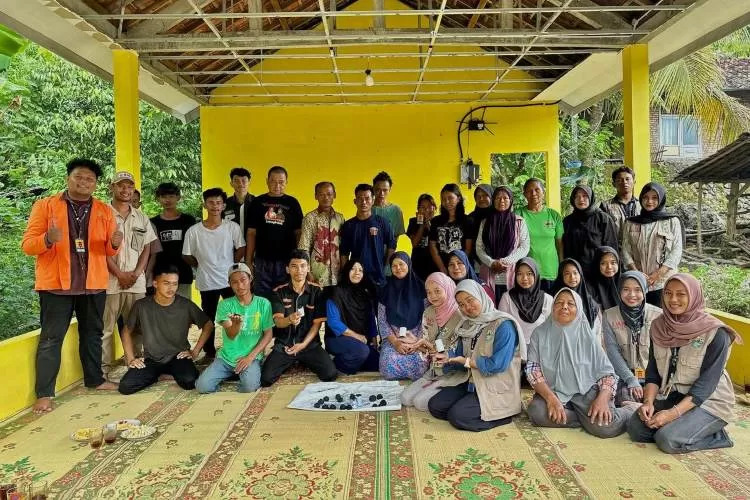In recent years, the quest for sustainable and environmentally friendly energy sources has intensified globally. One notable innovation in this arena is the development of biochar briquettes from agricultural waste. This approach not only addresses waste management challenges but also provides an alternative to traditional fossil fuels. A recent initiative by students from Universitas Ahmad Dahlan (UAD) in Indonesia exemplifies this sustainable practice.
The UAD Students' Initiative
In February 2025, a group of students from UAD's Community Service Program (KKN) Unit XIV.B.2 embarked on a project in Padukuhan Ngreyung, Pucung, Girisubo, Gunungkidul. Their mission was to transform rice husks, an underutilized agricultural byproduct, into biochar briquettes. Utilizing specialized molds, they aimed to convert these residues into a viable alternative fuel source.
Understanding Biochar Briquettes
Biochar briquettes are compacted blocks of biomass, primarily derived from organic materials like agricultural waste, wood chips, and other plant residues. These briquettes serve as a sustainable alternative to traditional fossil fuels, offering a cleaner and more efficient energy source for cooking, heating, and industrial processes. By converting waste into briquettes, communities can reduce their reliance on non-renewable energy sources and lower their carbon footprint.
Benefits of Biochar Briquettes
- Environmental Impact: Utilizing agricultural waste for biochar production addresses waste disposal issues and reduces environmental pollution. It also contributes to carbon sequestration, as biochar can lock carbon in the soil for extended periods.
- Economic Advantages: Producing biochar briquettes can provide additional income streams for rural communities. It offers a cost-effective alternative to conventional fuels, reducing household energy expenses.
- Soil Enhancement: When used as a soil amendment, biochar improves soil fertility, enhances moisture retention, and promotes beneficial microbial activity, leading to increased agricultural productivity.
The Production Process
The process of creating biochar briquettes involves several key steps:
- Carbonization: Agricultural waste, such as rice husks, is subjected to pyrolysis in a closed drum with limited air supply, converting the biomass into char.
- Grinding: The resulting char is ground into a fine powder using tools like mortars and pestles.
- Binding: The powdered char is mixed with a binder, commonly starch or clay, to facilitate cohesion.
- Molding: The mixture is then shaped into briquettes using specialized molds to achieve uniformity.
- Drying: The molded briquettes are dried to reduce moisture content, enhancing their combustibility and efficiency.
Global Perspectives and Applications
The concept of converting agricultural waste into biochar briquettes is gaining traction worldwide. For instance, Google has entered into a significant agreement to purchase carbon removal credits from Varaha, an Indian company that converts agricultural waste into biochar. This marks Google's first involvement in India's carbon dioxide removal sector, highlighting the global recognition of biochar's potential in sustainable practices.
Challenges and Considerations
While the benefits are substantial, several challenges must be addressed to optimize biochar briquette production:
- Quality Control: Variations in feedstock can lead to inconsistencies in briquette quality, affecting combustion efficiency and emissions.
- Technological Barriers: Access to appropriate technology and equipment is crucial for efficient production, especially in resource-limited settings.
- Market Development: Establishing a market for biochar briquettes requires consumer education and competitive pricing strategies.
Future Outlook
The initiative by UAD students serves as a model for integrating sustainable practices into community development. By harnessing agricultural waste, they not only provide an alternative energy source but also contribute to environmental conservation and economic empowerment. Scaling such initiatives could play a pivotal role in global efforts to transition towards sustainable and renewable energy solutions.
Conclusion
The development of biochar briquettes from agricultural waste represents a multifaceted solution to pressing environmental and energy challenges. Initiatives like those undertaken by UAD students demonstrate the potential of grassroots innovation in driving sustainable development. As the world seeks to reduce its carbon footprint and promote renewable energy, such projects offer valuable insights and pathways towards a more sustainable future.
Read More






 Thursday, 22-01-26
Thursday, 22-01-26







